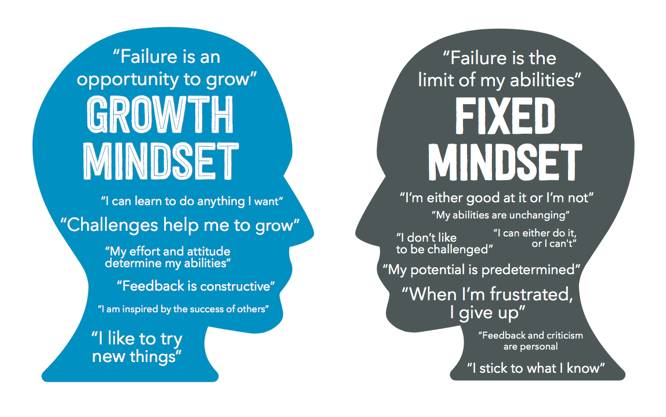The Resilient Mind: A Path to Inner Strength and Growth
In life, challenges are inevitable. We all encounter stress, disappointment, failure, and loss at different stages. While some are crushed under the weight of adversity, others seem to rise stronger from the ashes. What makes the difference? The answer lies in resilience—a powerful psychological strength that empowers individuals to face hardship, recover, and grow.
A resilient mind doesn’t mean a person never feels pain or despair. Instead, it signifies the ability to move forward despite them. It means being able to process emotions, learn from the experience, and emerge wiser and stronger. In today’s rapidly changing world—marked by uncertainty, competition, and emotional overload—cultivating resilience is not optional; it’s essential for mental well-being and success.

Understanding Resilience: More Than Just “Toughness”
At its core, resilience is the mental, emotional, and behavioral capacity to adapt, recover, and grow through life’s difficulties. It’s not about being emotionless or unaffected. Rather, it’s about how quickly and effectively one can return to a balanced state after facing a disruption.
One of the most empowering aspects of resilience is that it is not a fixed trait. You are not born resilient or not—it’s a dynamic process that anyone can develop. Psychologists emphasize that resilience is learned and cultivated through habits, mindset, and experiences. Think of it like a skill that strengthens with conscious effort, reflection, and persistence.
Why Do We Need a Resilient Mind?
A resilient mind offers several advantages across personal, emotional, and professional spheres:
Stress Management: When faced with pressure, resilient individuals don’t fall apart. They stay composed, assess the situation, and look for practical solutions. Their emotional equilibrium allows them to function effectively, even under stress.
Emotional Balance: Resilient people experience emotions deeply, but they manage them wisely. Instead of reacting impulsively to anger, fear, or sadness, they process and respond in healthy ways.
Stronger Relationships: With resilience comes empathy and emotional awareness. This fosters better communication and trust in personal and professional relationships.
Increased Productivity: Setbacks don’t derail resilient individuals. They remain focused and driven. Their ability to stay optimistic and action-oriented fuels their productivity.
Faster Recovery: Whether it’s a job loss, a personal crisis, or failure, resilient individuals bounce back quicker. They don’t just recover—they grow through the experience.

Key Traits of a Resilient Mind
Resilient people display certain characteristics that help them navigate life’s storms. These traits aren’t inherent—they’re cultivated over time:
Optimism: A positive outlook allows individuals to see challenges as temporary and surmountable.
Emotional Regulation: Being able to manage intense emotions without being overwhelmed is central to resilience.
Self-Efficacy: This is the belief in your ability to influence events and achieve outcomes. Resilient individuals trust their capacity to cope.
Flexibility: Life is unpredictable. The ability to adapt to change rather than resist it is vital.
Problem-Solving Ability: Resilient minds look for solutions rather than dwell on problems. They are decisive and resourceful.
Purpose and Meaning: A strong sense of purpose gives individuals the strength to endure hardship and stay committed to their goals.
Strategies to Build a Resilient Mind
Just like building muscle, strengthening resilience requires regular practice and intention. Here are ten powerful strategies to cultivate a resilient mindset:
1. Cultivate a Growth Mindset
A growth mindset is the belief that your abilities can be developed through effort and learning. When failure is seen as feedback instead of defeat, every challenge becomes a chance to grow. Asking “What can I learn from this?” opens the door to transformation.
2. Strengthen Emotional Intelligence (EQ)
Emotional intelligence—being aware of your emotions and those of others—enhances resilience. Self-awareness, self-regulation, empathy, and strong interpersonal skills help manage stress, conflict, and emotional ups and downs.
3. Practice Mindfulness and Self-Awareness
Mindfulness teaches us to stay present, observe our thoughts without judgment, and respond rather than react. Self-awareness builds clarity about your emotional triggers, strengths, and areas for growth—core pillars of resilience.
4. Maintain Social Connections
Human beings are wired for connection. Supportive relationships provide a sense of belonging and security during tough times. Nurture friendships, join support groups, or confide in mentors. You don’t have to face everything alone.
5. Sharpen Problem-Solving Skills
Resilient people don’t allow obstacles to paralyze them. They break problems into manageable parts, weigh options, and act decisively. Training yourself to think critically under pressure builds confidence and calmness.
6. Prioritize Physical Health
A healthy body supports a resilient mind. Regular exercise, nutritious food, restful sleep, and hydration improve your mood, energy, and cognitive function—making it easier to handle stress and bounce back.
7. Set Realistic Goals and Take Action
Big challenges can feel overwhelming. Break them into smaller steps, and celebrate progress. Goal-setting provides direction and motivation—essential during tough times.
8. Embrace Change
Change is inevitable, but it doesn’t have to be frightening. Resilient individuals accept that life is dynamic. Instead of resisting, they adapt. Seeing change as an opportunity rather than a threat makes navigating transitions easier.
9. Practice Gratitude and Positive Thinking
Focusing on what’s going right, even in difficult situations, brings emotional balance. Daily gratitude, reflection, and reframing negative thoughts can elevate mood and build emotional resilience.
10. Reflect and Learn from Experience
Every challenge contains a lesson. Resilient individuals ask reflective questions like: “What worked?”, “What didn’t?”, and “How can I grow from this?” Learning from adversity creates wisdom and prepares the mind for future trials.

Barriers to Resilience
To strengthen resilience, we must also understand what hinders it:
Negative Self-Talk: Inner dialogue like “I’m not good enough” undermines confidence and hope.
Isolation: Feeling unsupported makes challenges feel more daunting and less manageable.
Fear of Failure: Avoiding risks due to fear of failing can limit growth and resilience.
Poor Coping Mechanisms: Resorting to escapism, substance abuse, or denial weakens long-term resilience.
Perfectionism: The need to be flawless can lead to burnout, anxiety, and self-criticism.
Recognizing and addressing these barriers is crucial. Resilience often begins by changing how we speak to ourselves and allowing space for imperfection.
Resilience Across Life Domains
Resilience manifests in different areas of life:
1. Personal Life
In the face of grief, illness, or family challenges, resilience empowers individuals to process pain and rebuild. It doesn’t erase suffering but provides the strength to heal and grow.
2. Workplace
Resilience is a career asset. It helps professionals deal with tight deadlines, criticism, and failure without losing motivation. Resilient employees adapt to change and maintain performance under pressure.
3. Leadership
Resilient leaders are calm in crises. They inspire through action, lead with empathy, and navigate uncertainty with clarity. Their mindset influences the morale and resilience of their teams.
4. Students and Learning
For students, resilience determines how they respond to academic pressure, setbacks, or peer challenges. A resilient student stays engaged, learns from failure, and maintains self-belief.

Stories of Resilience: Real-Life Inspiration
Resilience is not just a concept—it’s lived and embodied by extraordinary individuals:
Nelson Mandela, after 27 years of imprisonment, emerged with grace and became a unifying force for South Africa.
J.K. Rowling faced rejection after rejection, yet her persistence gave the world Harry Potter.
Malala Yousafzai, targeted for advocating girls’ education, transformed her pain into a powerful movement for global change.
Their stories remind us that resilience doesn’t eliminate pain—it transforms it into purpose.
Conclusion: The Power Within
Resilience isn’t a finish line; it’s an ongoing process of self-discovery, growth, and transformation. It’s about facing storms, not by pretending they don’t exist, but by learning how to sail through them.
A resilient mind doesn’t ask, “Why me?”—it asks, “What now?” It doesn’t avoid pain, but learns from it. It doesn’t fear failure, but grows through it.
In a world full of uncertainty, developing resilience gives you the power to stay grounded, adapt with grace, and move forward with confidence. Every setback becomes a setup for a comeback.
The journey may not always be easy, but remember this: within you lies an extraordinary strength. With conscious effort, support, and belief, you can train your mind to not just survive—but to thrive.
https://www.linkedin.com/in/satish-kakri-executive-coach-17224417
https://www.facebook.com/nimblefoundation1
Thanks for Reading.